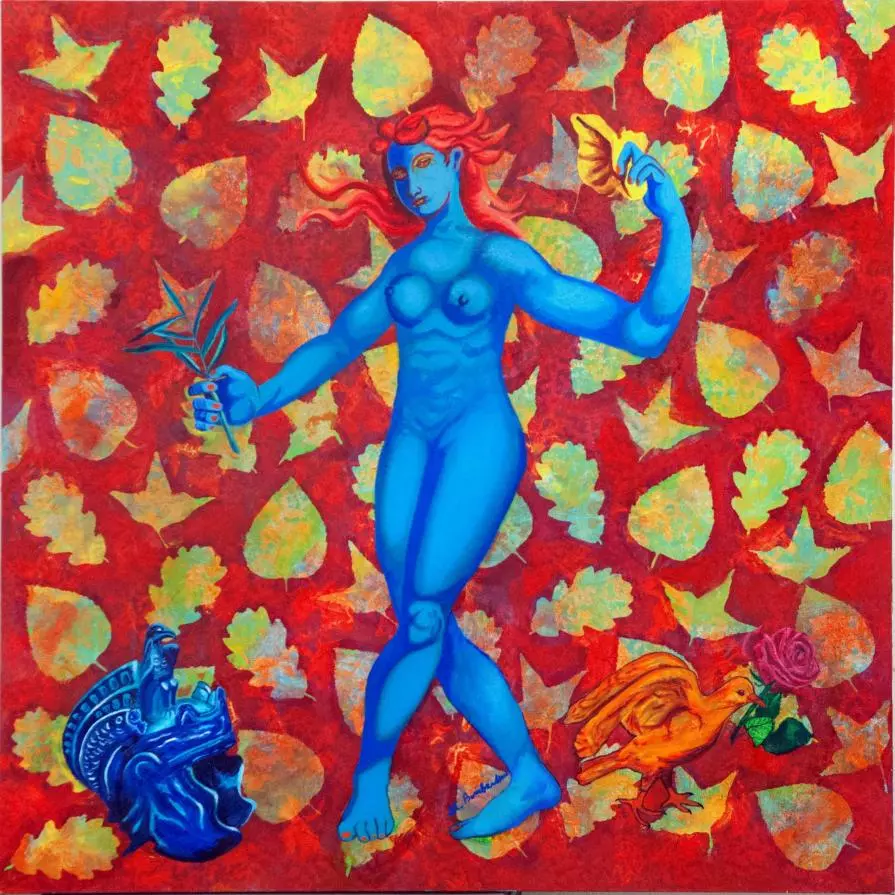Venere
The gracious and fertilizing smile of Venus is portrayed in Foscolo’s verses , which depicts the myth of the peaceful, eternal and incorruptible beauty, which for mortals is an alternative to the brutality and anguish of living, in an aspiration to a higher state of balance and harmony. Prior to the appearance of the goddess , the men lived in the state of nature , always fighting with each other, until she , moved by pity , emerged from the waters of the Ionian Sea , bringing with them the Graces , bearers of civilization.
The Goddess is often represented with her typical attributes - the dove and the rose. The image of Venus as opposed to that of Mars, the God of War , represented by the helmet on the ground, alludes to the power of love which triumphs over violence and war .
The theme of War has always divided thinkers and philosophers. There are those who , like Heraclitus, Plato and Cicero, consider it a necessary element for the maintenance of peace and those who , like Hegel , attributes it a high moral value . In fact , according to the latter , " as the movement of the winds preserves the sea from putrefaction , which would be reduced to a lasting peace ," so the war keeps people from fossilization , promoting change and progressive development of the story. Others, such as Leonardo da Vinci, define the war as a " bestial madness " . For example, Erasmus of Rotterdam is wondering about what ever push men, if not insane folly , to work with a lot of expense and effort to the general mutual ruin of the war. " Not even all the beasts fight a lot, but only the wild beasts , beasts bad . " In fact, the condition of war can be fully understood only by those who have experienced this situation . The presence of autumn leaves on the background of the picture is not random, it is an explicit reference to the poem " Soldiers " by Giuseppe Ungaretti :
It is as
autumnal
trees
the leaves.
Ungaretti composed this poem in 1918, while he is a soldier in the trenches in the woods of Courton (France). The direct experience that the poet experiences of the war, during the First World War led him to express the drama and the precariousness of the historical moment and the human condition. All the soldiers of any war and any era, are united by a common condition. This poem expresses the uncertainty and precariousness of life of soldiers at the front, which can die at any moment, like the leaves in autumn, can detach unexpectedly from the branches.
 Share / Save
Share / Save











Comments 3
Say something